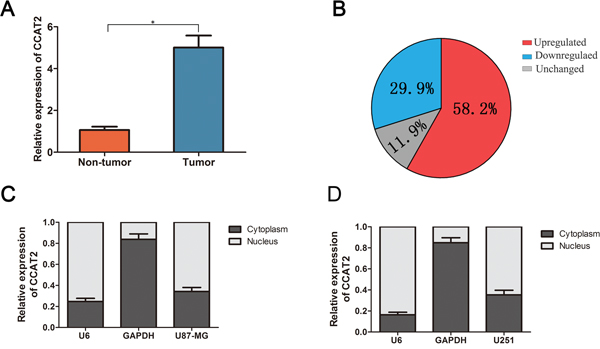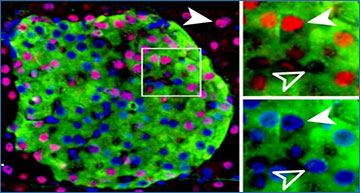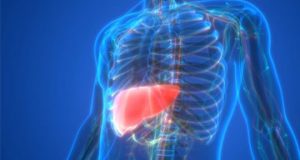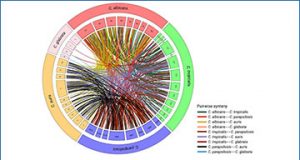Long non-coding RNA colon cancer-associated transcript 2 (CCAT2) is commonly investigated in a number of cancers. However, little is known of its expression and biological function in glioma biology. In the current study, researchers from Nanchang University used quantitative real-time PCR (qRT-PCR) to determine the expression of CCAT2 in glioma tissues. They found that expression of CCAT2 was up-regulated in glioma tissues and significantly correlated with the advanced tumor stage (III/IV). Functional assays in vitro and in vivo demonstrated that knockdown of CCAT2 could inhibit proliferation, cell cycle progression and migration of glioma cells. Further analysis indicated the effect of CCAT2 knockdown on glioma cell phenotype through inhibiting Wnt/β-catenin signal pathway activity.
Quantitative determination of CCAT2 by qRT-PCR in glioma tissues and glioma cell lines
A. Relative expression level of CCAT2 expression in glioma tissues and adjacent non-tumor tissues was measured by qRT-PCR (N=134). B. The percentage of glioma patients with lncRNA-ATB expression level (unregulated, downregualted and unchanged). RNA relative expression levels were normalized against the gene GAPDH transcript expression levels. *P=0.023, paired t-test. The nucleus localization of CCAT2, nucleus-retained U6 and cytoplasmic control transcript GAPDH in U87-MG cells C. and U251 cells D.
 lncRNA Blog lncRNA Research and Industry News
lncRNA Blog lncRNA Research and Industry News








